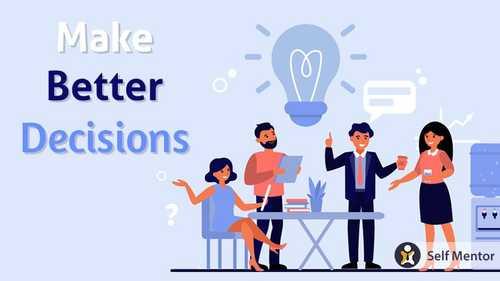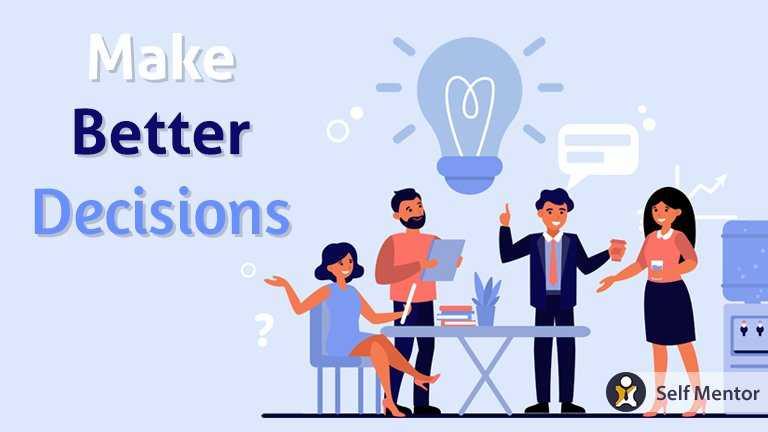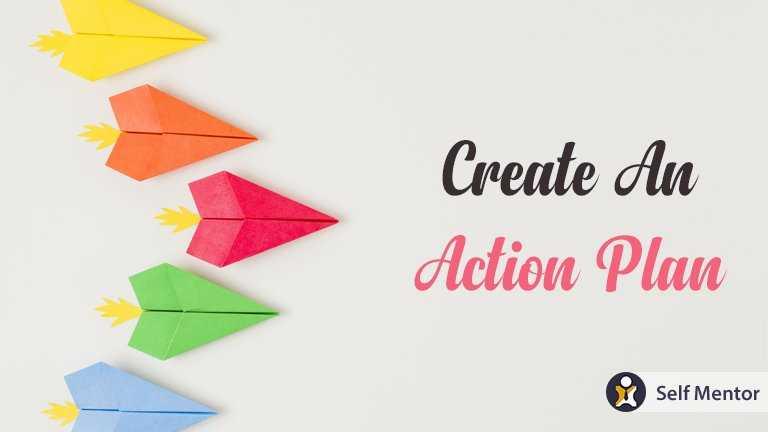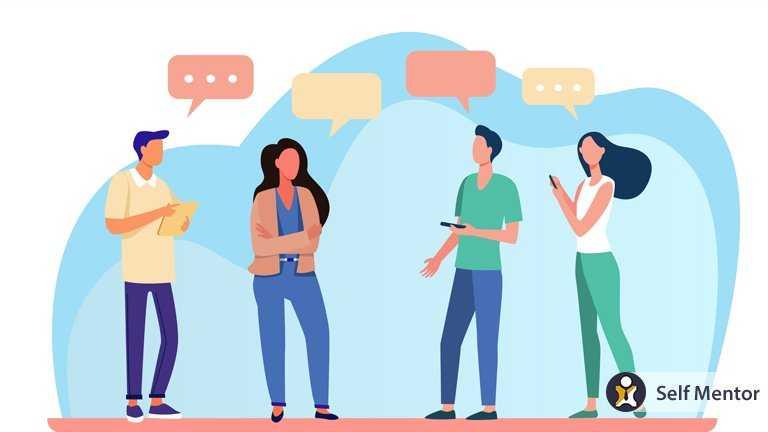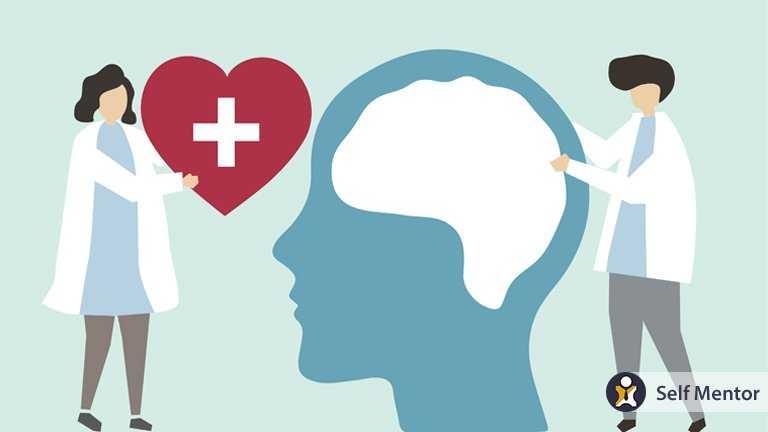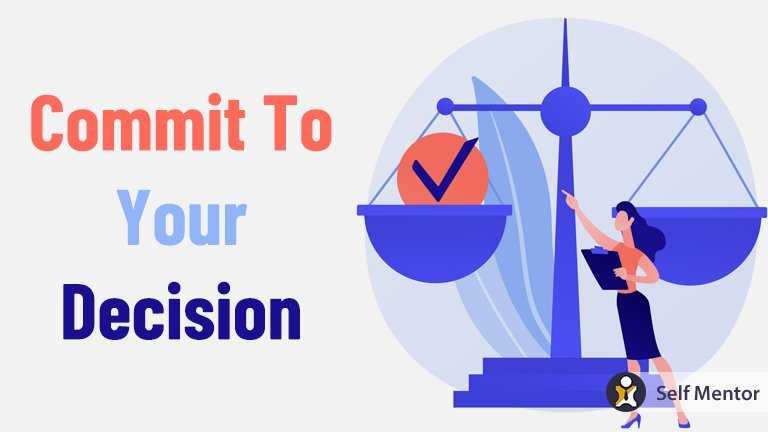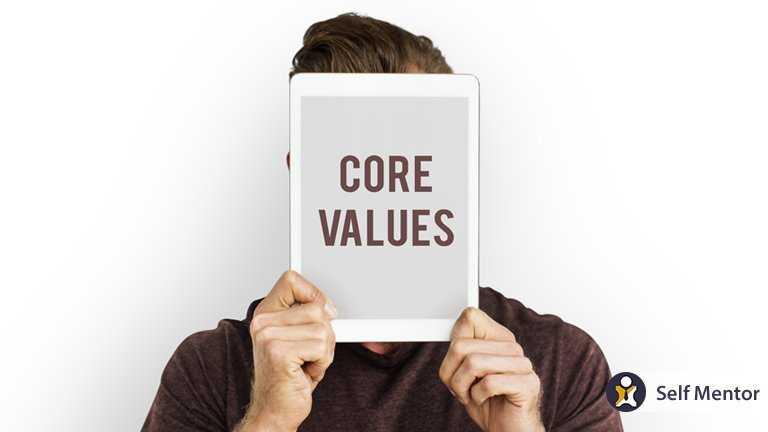How to Make Better Decisions
Curated from: selfmentor.net
Ideas, facts & insights covering these topics:
10 ideas
·182 reads
3
Explore the World's Best Ideas
Join today and uncover 100+ curated journeys from 50+ topics. Unlock access to our mobile app with extensive features.
How To Make Better Decisions
Over time, you should develop the skills for making better decisions based on past experiences and any newfound knowledge. There are still steps you can take to learn how to make better decisions for yourself, your future, and your workplace.
Fortunately, everyone can take steps to become better decision-makers. If you want to become a better decision-maker, incorporate these nine daily habits into your life.
Life is full of decisions, some small and some big. But even though decision-making is something we all do every day, making good decisions isn't always easy.
7
44 reads
Create Action Plan
Once you have decided what you are going to do, you should write out steps to actually implement it. Your action plan should include the step-by-step approach, your timeline for implementing your solution, and how you will include any other people who may be impacted by your decision.
For example , if you have made the decision to go on a vacation, you need to take specific steps to make the vacation happen. Your steps may include budgeting and saving money for your trip, talking to anyone who would be going on the vacation with you, determining a date for the vacation, figuring out transport..
7
21 reads
2. Identify The Risks You Take
Familiarity breeds comfort. And there’s a good chance you make some poor decisions simply because you’ve grown accustomed to your habits and you don’t think about the danger you’re in or the harm you’re causing.
For example , you might speed on your way to work every day. Each time you arrive safely without a speeding ticket, you become a little more comfortable with driving fast. But clearly, you’re jeopardizing your safety and taking a legal risk.
Or maybe you eat fast food for lunch every day. Since you don’t suffer any immediate signs of ill health, you might not see it as a problem.
7
19 reads
3. Don't Ask Other People What You Should Do
You don’t have to ask people what they think. It makes it even more difficult to make a decision when you are caught up in other people’s opinions about what’s best for you.
If you ask 4 people what they think you should do, you will most likely get 4 different rants of advice. And the feedback will likely lead to confusion and second-guessing.
Feel free to consult the people who will be directly affected by your decision and then confidently let everyone know what you've decided.
7
17 reads
4. Heart Vs Head
Some people are ruled by their heart and some by their head. The secret to strong decision-making processes is to know which personality type you are and take steps to balance things out. If you’re always ruled by your gut or impulsive, it’s important to give your head time to catch up and have some input.
Conversely, if you’re always calm and measured and let your brain do the thinking, it could be time to give your heart a say. Forget about being rational and sensible for once what will truly make you happy? Trust yourself, listen to your instincts, and see where they take you.
7
18 reads
5. Remove Yourself From The Situation
If you want to be a better decision-maker, it can be helpful to allow yourself to be an outside observer of the situation. When you do, you're more likely to think about all your other options and even be more open to considering compromises, which can be especially helpful when your decision impacts others.
Sometimes there are a lot of emotions involved in the decision process, and removing yourself from the situation for even a short period of time can help you refocus and look at the facts of what's in front of you.
6
14 reads
6. Commit To Your Decision
If you can’t do this and you are still thinking about alternatives, then your decision will not be good because you’re not able to let go of those other options. It is very important to follow through with your decision.
Trying to make the decision is one of the hardest parts. You can get so caught up in making the right choice that you never take any action. If you do not follow through on a decision, you may miss out on some of the rewards and benefits.
7
13 reads
7. Allign Your Life With Core Values
Decisions you make based on your core values create motivational alignment. So make your decisions based on whether or not they align with your highest values, passions, and priorities, or it’s not going to feel like you made the right choice.
Before you can figure out if the decision is united with the things that mean the most to you, you first need to get clear about what those values are. Make a written list of your highest values. And once you're clear, make a list of all the ways your choice aligns with those values.
7
11 reads
8. Set Aside Time To Reflect On Your Mistakes
Whether you left the house without an umbrella and got drenched on the way to work, or you blew your budget because you couldn’t resist an impulse purchase, set aside time to reflect on your mistakes.
Make it a daily habit to review the choices you made throughout the day. When your decisions don’t turn out well, ask yourself what went wrong. Look for the lessons that can be gained from each mistake you make.
Just make sure you don’t dwell on your mistakes for too long. Rehashing your missteps over and over again isn’t good for your mental health.
7
11 reads
9. Manage Your Emotions
Emotions should play a role in your decision-making, but it becomes necessary to make sure you're acting with emotional intelligence if you want to make better decisions. Just like there is a delicate balance to asking for feedback, it's the same for managing your emotions.
Too much emotion can cloud your judgment, causing you to make decisions that you may not have if you were thinking more rationally. This applies to both positive and negative emotions, too.
6
14 reads
IDEAS CURATED BY
Businesses man, Reader, learner and most important investor in self to become better version for myself and WORLD.
Syed Tanveer Pasha's ideas are part of this journey:
Learn more about psychology with this collection
How to communicate effectively with difficult people
How to handle conflict
How to stay calm under pressure
Related collections
Similar ideas
9 ideas
6 ideas
5 ideas
Read & Learn
20x Faster
without
deepstash
with
deepstash
with
deepstash
Personalized microlearning
—
100+ Learning Journeys
—
Access to 200,000+ ideas
—
Access to the mobile app
—
Unlimited idea saving
—
—
Unlimited history
—
—
Unlimited listening to ideas
—
—
Downloading & offline access
—
—
Supercharge your mind with one idea per day
Enter your email and spend 1 minute every day to learn something new.
I agree to receive email updates
